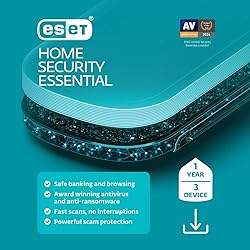Why VPNs Are Essential in Countries with Censorship
In today’s interconnected world, VPNs are essential in countries with censorship to ensure secure, unrestricted access to information and protect individual privacy. As the internet grows, so too does the desire for some governments to limit the free flow of data, impeding citizens’ rights and exposing them to privacy risks. For many people around the globe, VPNs (Virtual Private Networks) are not just convenient tools but vital lifelines, offering a way to skirt around online obstacles imposed by restrictive regimes.
The Landscape of Internet Censorship
Across the globe, many countries deploy sophisticated systems to control what their citizens can see and do online. These systems can range from blocking social media platforms, news sites, and messaging apps to more intrusive measures like surveilling online behavior or tracking digital footprints. In such environments, access to global information is heavily restricted, and expressing personal opinions online can pose serious risks to individuals.
This digital repression stifles freedom of expression, blocks educational resources, and limits professional opportunities. For businesses and journalists, operating in these environments also poses significant challenges, as gathering accurate information and communicating securely becomes increasingly difficult.
How VPNs Work to Circumvent Censorship
A VPN works by encrypting a user’s internet traffic and routing it through servers located outside their country of residence. This process effectively masks the user’s IP address and makes it appear as though they are accessing the internet from another location. Not only does this encryption shield users from local surveillance, but it also allows them to bypass content filters and access websites and services that are otherwise blocked or suppressed in their region.
With a robust VPN, individuals can:
– Access unbiased news outlets and social media platforms.
– Safely communicate with friends, family, and colleagues abroad.
– Share and receive information without fear of government reprisal.
VPNs and Personal Privacy Protection
Beyond helping users sidestep censorship, VPNs play a critical role in protecting privacy. In tightly controlled digital environments, surveillance is often widespread. Governments monitor online activities, intercept message content, and collect data on users’ browsing habits. This surveillance can lead to unlawful detentions, harassment, and even persecution.
Using a VPN encrypts internet activities, making it significantly harder for ISPs and government agencies to track what users do online. For whistleblowers, activists, and journalists, this layer of protection is often essential for their safety and ability to operate.
The Importance of VPNs for Business and Academic Access
VPNs are essential for organizations and individuals who need to collaborate across borders. In many countries with strict censorship, numerous professional tools and communication platforms are blocked, limiting productivity and access to global markets.
A VPN provides secure remote access to internal company networks and resources. Educational institutions, restricted to local content, can regain open access to international journals, learning platforms, and cloud-based services. For students, researchers, and professionals, this unrestricted internet access is vital for their work and development.
Legal and Ethical Considerations
While VPN usage is common and even encouraged in many countries, it is important to note that in some places, the use of VPNs can itself be subject to legal restrictions or penalties. Users should always educate themselves about local laws and regulations before setting up a VPN. Cyber security experts recommend choosing reputable VPN providers that do not keep user logs, as these services are less susceptible to data leaks or pressure from authorities.
Choosing the Right VPN in a Censored Environment
Given the stakes, selecting a reliable VPN provider is crucial. Look for the following features:
– No-logs policy: Ensures that the VPN service does not track or store your online activities.
– Strong encryption standards: Protects your data from interception.
– Obfuscated servers: Help mask the use of a VPN, avoiding detection by sophisticated censorship systems.
– Wide server selection: Increases the chances of finding fast, reliable connections outside of the censored country.
Conclusion
In summary, VPNs are indispensable tools for those living and working in censored countries. They not only enable free access to global information but also safeguard privacy in environments where digital rights are under constant threat. As internet censorship becomes more sophisticated, the need for robust, secure VPN solutions will only grow, highlighting their essential role in the fight for freedom of expression and online safety.


